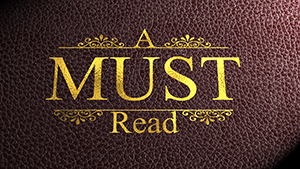Richard Osborn’s “Twilight for the West?”
 I love getting to read books by local authors, so I am excited to say that this week I’m reviewing a book that is a little different from what I normally gravitate towards: Richard Osborn’s Twilight for the West? For those that have been following my reviews recently, I have been reviewing the techno-espionage Ian Black thrillers co-written by local authors Richard and Barbara Osborne, writing out of Knoxville, Tennessee. Twilight for the West? is another experience entirely, being a nonfiction history-political critique of Western political and military action, focusing on particularly notorious blunders from 1914-2014. The book is split into twenty-two chapters, each focusing on a particular incident or chain of events, with the final chapter serving as an “author’s opinion” section on what the biggest crises of all might be.
I love getting to read books by local authors, so I am excited to say that this week I’m reviewing a book that is a little different from what I normally gravitate towards: Richard Osborn’s Twilight for the West? For those that have been following my reviews recently, I have been reviewing the techno-espionage Ian Black thrillers co-written by local authors Richard and Barbara Osborne, writing out of Knoxville, Tennessee. Twilight for the West? is another experience entirely, being a nonfiction history-political critique of Western political and military action, focusing on particularly notorious blunders from 1914-2014. The book is split into twenty-two chapters, each focusing on a particular incident or chain of events, with the final chapter serving as an “author’s opinion” section on what the biggest crises of all might be.
The book’s greatest boon is Osborn’s personal connection to the material. As a veteran of the British Royal Artillery and U.S. Air Force, Osborn brings firsthand military experience to his critique, applying a no-nonsense, efficiency-oriented look at the various events discussed at length throughout the book. The book is meticulously structured, doesn’t dwell on any particular issue too long, provides timelines throughout, and always ties the discussion back to a main overview of the West’s movement forward in the international political community. This pacing keeps the book from becoming a historical account, which may not appeal to some more technically-minded history buffs, but is very effective at introducing material, providing context, and tying the material together without becoming cumbersome. Osborn’s highlights should raise some very relevant questions in readers’ minds from a tactical standpoint, and should appeal to fans of military nonfiction.
If you are a fan of nonfiction military or political books, or books by local authors, then Twilight for the West? is a book you will definitely want to check out. While it doesn’t carry the sheer weight of content of a full historical account log, the book provides an accessible, thorough critique of the last century of Western history thorough the eyes of a man with an extensive service resume. Obviously, If you aren’t a fan of nonfiction then this may not be the book for you: you may want to check out my reviews of the Ian Black novels for a fictional delve into military/thriller literature.











